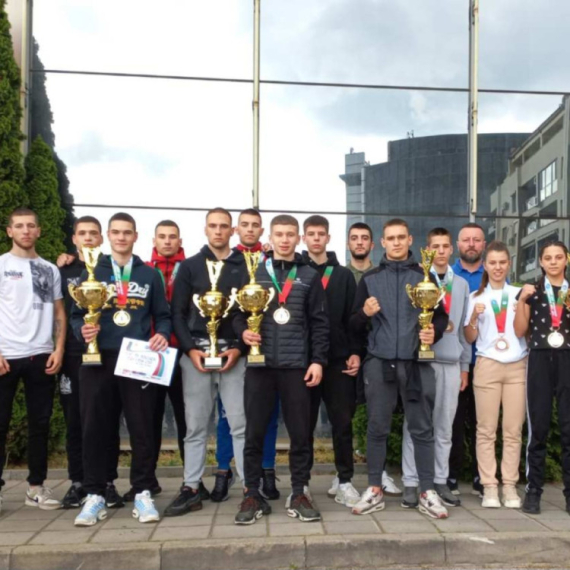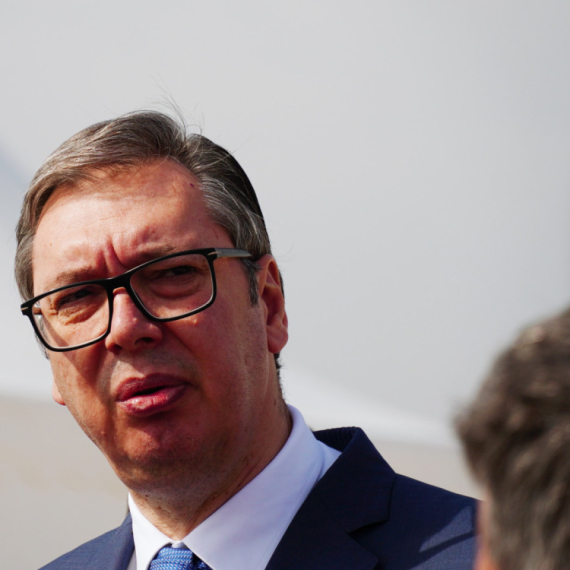Warnings about new press freedom offenders
On World Press Freedom Day the South East Europe Media Organization (SEEMO) said there is still a long way to go until media workers can enjoy press freedom.
Tuesday, 03.05.2011.
11:58

On World Press Freedom Day the South East Europe Media Organization (SEEMO) said there is still a long way to go until media workers can enjoy press freedom. Threats, assaults, harassment and diverse types of pressure are part of a journalist's daily life in South, East and Central Europe, said the Vienna-based regional network of editors and journalists. Warnings about new press freedom offenders In 2010, SEEMO said it registered "406 press freedom violations in Albania, Bosnia and Herzegovina, Belarus, Bulgaria, Croatia, Cyprus, Czech Republic, Greece, Hungary, Kosovo, Macedonia, Moldova, Montenegro, Poland, Romania, Serbia, Slovak Republic, Slovenia, Turkey, and Ukraine". These included different forms of threats made by email, letter, telephone, or in person, murders, physical assaults, bomb attacks, detentions and imprisonment, criminal charges, house arrests, political and economic pressures, as well as menacing warnings from religious leaders. SEEMO did not always react publicly to these violations of press freedom: in some cases, journalists on the ground preferred result-oriented quiet diplomacy, rather than public protests. In those cases, SEEMO representatives met with government and political leaders in order to solve specific issues raised by journalists. While the number of violations is not on the rise, the sources of threats have become increasingly diversified in comparison to previous years. In transition countries, politicians used to be the main source of threats and pressures. This is no longer the case. Nowadays, threats also come from business groups, often linked to mafia-style business dealings, religious organizations, actors, musicians, etc. The above mentioned cases do not include other types of controls exerted on the media, such as inadequate media laws, pressure by media owners on editors and journalists, or blackmail by advertisers and other economic groups. SEEMO-registered violations for 2010 do not include on-going court cases initiated against journalists before 2010. If these were added, the number of violations would amount to over 2,000 cases. In addition, economic issues further complicate journalists' activities: obscure media ownership structures and hidden interests, problems with collective contracts or the lack of any contracts, as well as poor salaries. In some countries, below average salaries are used as a means to exert control over journalists. "The fight for press freedom is a daily struggle. We still have a long way to go," declared Oliver Vujovic, SEEMO Secretary General.
Warnings about new press freedom offenders
In 2010, SEEMO said it registered "406 press freedom violations in Albania, Bosnia and Herzegovina, Belarus, Bulgaria, Croatia, Cyprus, Czech Republic, Greece, Hungary, Kosovo, Macedonia, Moldova, Montenegro, Poland, Romania, Serbia, Slovak Republic, Slovenia, Turkey, and Ukraine".These included different forms of threats made by email, letter, telephone, or in person, murders, physical assaults, bomb attacks, detentions and imprisonment, criminal charges, house arrests, political and economic pressures, as well as menacing warnings from religious leaders.
SEEMO did not always react publicly to these violations of press freedom: in some cases, journalists on the ground preferred result-oriented quiet diplomacy, rather than public protests. In those cases, SEEMO representatives met with government and political leaders in order to solve specific issues raised by journalists.
While the number of violations is not on the rise, the sources of threats have become increasingly diversified in comparison to previous years. In transition countries, politicians used to be the main source of threats and pressures. This is no longer the case. Nowadays, threats also come from business groups, often linked to mafia-style business dealings, religious organizations, actors, musicians, etc.
The above mentioned cases do not include other types of controls exerted on the media, such as inadequate media laws, pressure by media owners on editors and journalists, or blackmail by advertisers and other economic groups.
SEEMO-registered violations for 2010 do not include on-going court cases initiated against journalists before 2010. If these were added, the number of violations would amount to over 2,000 cases.
In addition, economic issues further complicate journalists' activities: obscure media ownership structures and hidden interests, problems with collective contracts or the lack of any contracts, as well as poor salaries. In some countries, below average salaries are used as a means to exert control over journalists.
"The fight for press freedom is a daily struggle. We still have a long way to go," declared Oliver Vujović, SEEMO Secretary General.









































Komentari 0